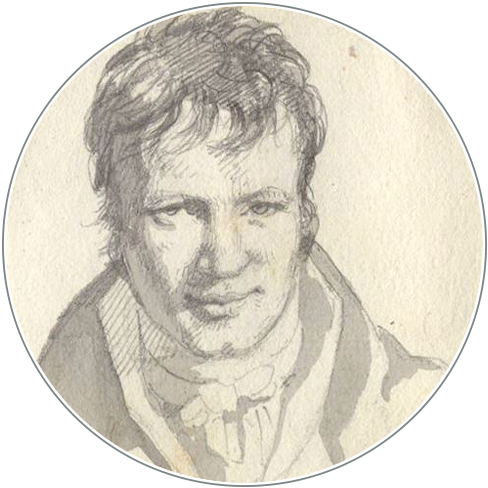Humboldt y el ‘Área de Libre Comercio de las Américas (ALCA)’ - Un ejercicio de ‘ciencia humboldtiana’
DOI:
https://doi.org/10.18443/33Palabras clave:
1799-1804, Área de Libre Comercio de las Américas (ALCA)Resumen
Resumen
Como es sabido, Humboldt y Bonpland concluyeron su largo periplo americano de casi 5 años con una corta e intensa estadía de casi 3 meses en los EE.UU., de América. Como ya se estudió en un estudio precedente (‘HiN’ nº 3, 2001) en un inciso de su obra político-económica, Humboldt auguró el papel y puesto que muy seguramente habría de corresponderles a los nacientes Estados americanos en el conjunto del nuevo orden mundial post-napoleónico. Sin que su obra involucrase a los ‘jóvenes’ EE. UU., en algún momento Humboldt dejó explícito que ese futuro pintaba muy diferente para los países hispanoamericanos, en particular en razón de las muchas barreras étnicas, sociales, culturales y sobre todo ‘vicios’ heredadas de la colonia. Tales convicciones fueron compartidos en su momento por otros connotados ‘ilustrados’ alemanes, entre ellos G.F. Hegel quien además veía casi inevitable –y hasta necesario- un enfrentamiento –incluso armado- entre el Norte y Sur de América. Esto último, como precondición para que la ‘razón’, la idea’ y el ‘espíritu’ pudieran renacer en el ‘nuevo mundo’ una vez hubiera concluida, tras la plena emancipación iberoamericana, la dominación colonial europea en el continente; o lo que era lo mismo, para evitar el ‘fin’ de la ‘Historia’.
Después de 200 años de compleja y no fácil ‘convivencia’ entre los EE.UU., de América y el resto del continente ‘suramericano’, y después de haber fracasado Iberoamérica en al menos dos ocasiones por lograr una plena reinserción en la economía, política y cultura occidentales, los EE.UU., han tomado la iniciativa de ofrecer –e incluso forzar- una gran alianza continental que llevará en un cortísimo plazo –2005- a la formación de un solo mercado preferencial hemisférico, y si se quiere una única cultura económica americana.
Una de las muchas preguntas que motiva semejante reto está en saber si los países iberoamericanos han superados las aludidas rigideces y ‘vicios’ histórico-estructurales que en su momento denunció Humboldt; y por lo mismo, si persistiendo éstas, cara sus eventuales socios del Norte, sería posible que Iberoamérica, de la mano de EE.UU., y Canadá, podrá por fin encontrar un sitio adecuado –y por lo demás un papel apropiado y digno- dentro del nuevo sistema mundial, ahora llamado de la ‘globalización’.
La mencionada inquietud constituye un nuevo reto para la ‘ciencia humboldtiana’ y por ello la posibilidad de intentar analizar el ‘presente’ con las mismas premisas que en su fecha utilizó Humboldt para criticar la realidad hispanoamericana y en alguna forma presagiar su futuro inmediato. Es lo que, una vez más con la modestia que el intento exige, lo que se pretende plantear en este trabajo.
Abstract
As it is well known, Humboldt and Bonpland ended their almost five-years-journey throughout the American continent with a short but intense stay of nearly three months in the USA.
As it has already been studied in a previous paper (‘HiN’ nº 3, 2001), Humboldt’s political and economical thesis predicted the role and the place that would most probably correspond to the newly born American nations within the new post-Napoleonic world order.
Afterward, Humboldt explicitly stated that not only the future but the present of the USA seemed very different to the one of the Latin American countries due to the many ethnic, social and cultural barriers, and specially to the many historical ‘vices’ that these had inherited from the colony. This conviction was shared with other ‘illustrated’ German thinkers of his time, such as G.F. Hegel, who thought that after the full consummation of the Iberoamerican independence from Europe a confrontation, even military, will be unavoidable and even necessary between the North and the South of the America as precondition for the rebirthing of the ‘idea’, ‘reason’ and ‘spirit’ into the ‘new world’; it is, as precondition for the continuity of ‘History’; in other words, for avoiding the ‘end of History’.
After 200 years of a complex and difficult coexistence between the USA and the rest of the continent, and after at least two failures of Iberoamerica to achieve a full reinsertion within the Western politics, culture and economy, the USA, having been a super world power for several decades, have offered, and even forced, a great continental alliance (‘ALCA) ’that will lead in, a very short term (2005), to a unique and preferential continental market and, in some way, to a unique American economic culture.
One of the many questions that arises about such a challenge is if the Iberoamerican countries have yet been able to overcome the mentioned historic and structural barriers and colonial ‘vices’ referred by Humboldt. And, if in despite of these barriers, would Iberoamerica, by the hand of the USA and Canada, finally be able to find an appropriate and deserved ‘place’ and ‘role’ within the ‘new world order’ of the so called ‘globalization’ era.
This questioning is a new challenge for the Humboltian science and a possibility for it to analyze the ‘present time’ with the same premises used by Humboldt at his time to criticize the Hispano-American reality and to certain extent, predict its immediate future. This is what, with the required humbleness, this paper tries to formulate.
Cómo citar
Número
Sección
Licencia
Derechos de autor 2002 Jose Alberto Navas Sierra

Esta obra está bajo una licencia internacional Creative Commons Atribución-NoComercial 4.0.
Los derechos de los artículos enviados permanecen en manos de los/as autores/as y se publican bajo una licencia CC (CC BY-NC 4.0). Todos los/as autores/as que publican en HiN aceptan este modelo de licencias.
Es responsabilidad de los/as autores/as obtener la autorización necesaria para la publicación de imágenes.
Los derechos del Diseño de Impresión y el diseño de la revista no son transferibles y no pueden reutilizarse de ningún modo para otras publicaciones sin previa aprobación de HiN.








